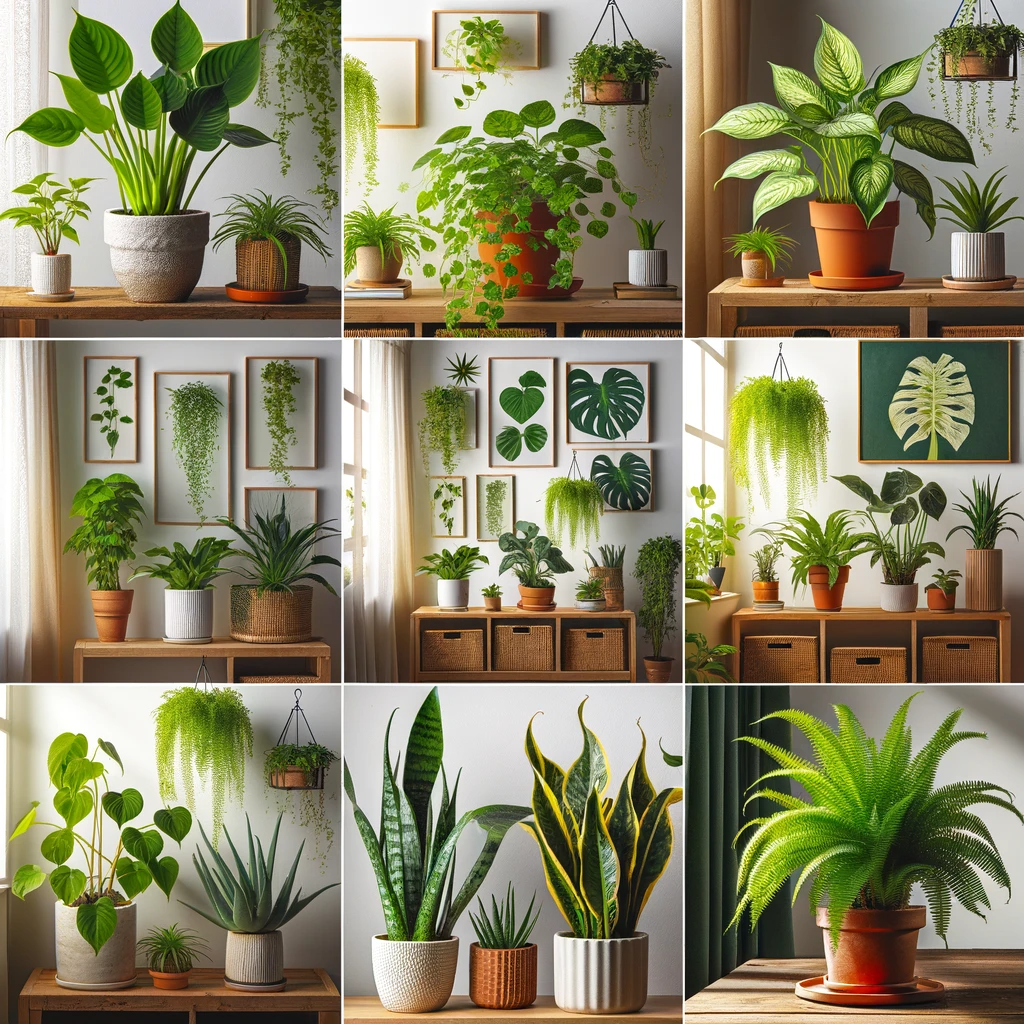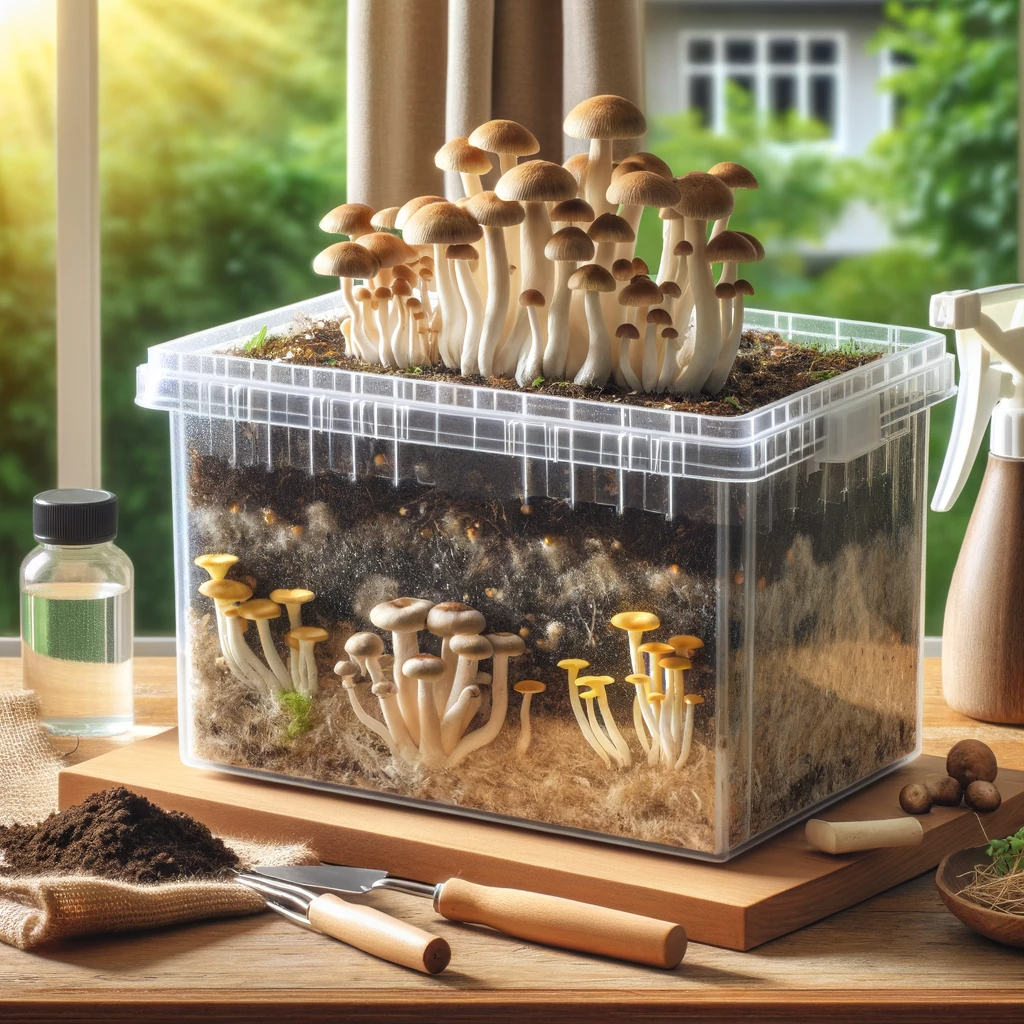
Fast-Growing Houseplants to Bring Life to Your Home
Houseplants are a great way to add life and color to your home, and they can also help to improve air quality. If you're looking for houseplants that will grow quickly and easily, here are a few suggestions:
Pothos (Epipremnum aureum): Known for its easy care and ability to thrive in various light conditions, pothos vines grow quickly and can trail elegantly from hanging baskets or climb up supports.

Spider Plant (Chlorophytum comosum): This resilient plant produces baby spider plants that can be easily propagated. It's adaptable to different lighting conditions and grows quickly.

Snake Plant (Sansevieria): A low-maintenance option, snake plants can tolerate low light and infrequent watering. They grow steadily and come in various shapes and sizes.

ZZ Plant (Zamioculcas zamiifolia): With shiny, dark green leaves, ZZ plants thrive in low-light environments and require minimal maintenance while steadily growing.

Chinese Money Plant (Pilea peperomioides): This plant produces offshoots that can be propagated easily. It prefers bright, indirect light and grows relatively quickly in the right conditions.

Monstera (Monstera deliciosa): Popular for its unique split leaves, the Monstera can grow rapidly in bright, indirect light. As it matures, its leaves develop stunning fenestrations.

Philodendron: There are various types of philodendrons, like the heartleaf philodendron or the Swiss cheese plant (Philodendron selloum), which grow quickly and can tolerate different light conditions.
Rubber Plant (Ficus elastica): With its glossy leaves, the rubber plant grows quickly and can become quite tall if given adequate light and space.
Prayer Plant (Maranta leuconeura): Known for its striking foliage, the prayer plant grows rapidly and folds its leaves upwards at night, giving it a unique look.
Aloe Vera: This succulent not only has medicinal properties but also grows quickly and produces offsets that can be repotted to create new plants.
Peace Lily (Spathiphyllum): With elegant white flowers, peace lilies grow rapidly and are excellent air purifiers, thriving in low to moderate light conditions.
Jade Plant (Crassula ovata): A symbol of good luck, jade plants grow steadily and can become quite large over time. They prefer bright light and well-draining soil.
Bromeliads: These colorful plants add a tropical touch to any space and can grow relatively quickly, especially when given adequate warmth and humidity.
Pilea 'Moon Valley': Characterized by its textured leaves, this pilea variety grows rapidly and creates a visually interesting display with its foliage.
Tradescantia (Spiderwort): This plant grows quickly and produces colorful foliage, making it a beautiful addition to your indoor garden.
Tips for Growing Fast-Growing Houseplants
Choose the Right Pot:
Select a pot that is slightly larger than the plant's root ball, ensuring adequate space for root expansion without becoming too cumbersome. A pot that's too large can retain excessive moisture, leading to root rot, while one that's too small can restrict growth.
Utilize Well-Draining Potting Mix:
A well-draining potting mix is crucial for healthy root development and prevents waterlogging. Opt for a mix that provides aeration while retaining enough moisture to nourish the plant. Avoid heavy clay-based soils that can hinder drainage and suffocate the roots.
Water Wisely:
Regular watering is essential for fast-growing houseplants, but overwatering can be detrimental. Allow the topsoil to dry slightly between waterings to prevent root rot. Adjust watering frequency based on the plant's specific needs and the environmental conditions.
Embrace Fertilization:
Regular fertilization provides essential nutrients for optimal growth and vitality. Use a balanced liquid fertilizer diluted to half strength during the active growing season, typically spring and summer. Avoid over-fertilizing, which can lead to salt buildup and damage to the roots.
Provide Adequate Light:
Most fast-growing houseplants prefer bright, indirect light. Identify the specific light requirements of your plant species and position it accordingly. Avoid direct sunlight, which can scorch delicate leaves, and low-light conditions, which can stunt growth.
Maintain Optimal Humidity:
Many fast-growing houseplants thrive in humid environments. Mist the leaves regularly, especially during winter when indoor air tends to be drier. Consider placing the plant on a pebble tray filled with water to increase humidity around the pot.
Prune Strategically:
Regular pruning encourages new growth, maintains the plant's shape, and promotes air circulation. Use sharp pruning shears to remove dead, diseased, or damaged leaves. Pinch off leggy stems to promote bushier growth.
Monitor for Pests and Diseases:
Regularly inspect your plants for signs of pests, such as insects or webs, and diseases, such as discoloration or wilting. Treat infestations promptly with appropriate pest control methods. Practice good hygiene to prevent the spread of pathogens.
Repot When Necessary:
As your fast-growing houseplant matures, it may outgrow its current pot. Repotting provides fresh soil, more space for root expansion, and promotes continued growth. Choose a pot that is one to two sizes larger than the current one.
Love Your Plants:
Give your plants the attention and care they deserve. Observe their growth patterns, adjust their care as needed, and enjoy the beauty they bring to your home. Your love and attention will be reflected in their vibrant appearance and healthy growth.
Nourishing Your Green Companions: Essential Nutrients for Fast-Growing Houseplants
Just like we humans require a balanced diet to thrive, our fast-growing houseplants also demand a steady supply of essential nutrients to flourish. These nutrients act as building blocks, fueling their growth, promoting vibrant foliage, and enhancing their overall resilience. Understanding the nutrient requirements of your leafy companions is crucial for cultivating a thriving indoor jungle.
The Nutrient Trio: Nitrogen, Phosphorus, and Potassium
The three primary nutrients for plants are nitrogen (N), phosphorus (P), and potassium (K). These nutrients play distinct yet interconnected roles in plant health:
Nitrogen: The cornerstone of plant growth, nitrogen is responsible for the development of lush green foliage. It promotes stem elongation and leaf production, ensuring your plants reach their full potential.
Phosphorus: Phosphorus acts as an energy powerhouse, fueling essential plant processes like photosynthesis and root development. It also contributes to flower and fruit formation, adding beauty and vibrancy to your houseplants.
Potassium: Potassium serves as a regulator, maintaining overall plant health and resilience. It strengthens cell walls, improves water absorption, and enhances disease resistance, ensuring your plants can withstand environmental stresses.
Secondary Nutrients: Micronutrients that Matter
While the primary nutrients form the foundation of plant nutrition, secondary nutrients, such as calcium, magnesium, sulfur, and iron, also play critical roles:
Calcium: Calcium contributes to cell wall strength and structural integrity, preventing plant diseases and promoting healthy growth.
Magnesium: Magnesium acts as a chlorophyll activator, enabling plants to effectively capture sunlight for photosynthesis. It also plays a role in enzyme function and protein synthesis.
Sulfur: Sulfur is essential for amino acid production, which forms the building blocks of proteins. It also contributes to enzyme function and stress tolerance.
Iron: Iron is crucial for chlorophyll synthesis, enabling plants to efficiently convert sunlight into energy. It also plays a role in respiration and enzyme function.
Additional Nutrients: Trace Elements for Optimal Health
Trace elements, such as zinc, copper, manganese, boron, molybdenum, chlorine, and nickel, are required in minute amounts but are still essential for plant health:
Zinc: Zinc is involved in enzyme function, growth regulation, and carbohydrate metabolism.
Copper: Copper is essential for enzyme activity, respiration, and chlorophyll synthesis.
Manganese: Manganese plays a role in photosynthesis, enzyme function, and disease resistance.
Boron: Boron contributes to cell wall formation, nutrient transport, and hormone production.
Molybdenum: Molybdenum is essential for nitrogen fixation, enabling plants to utilize atmospheric nitrogen for growth.
Chlorine: Chlorine plays a role in photosynthesis and enzyme function.
Nickel: Nickel is involved in enzyme function and nitrogen metabolism.
Tailoring Nutrient Supply to Specific Needs
The specific nutrient requirements of your houseplants vary depending on their species, growth stage, and environmental conditions. Flowering plants, for instance, require more phosphorus to support flower production, while young plants may need more nitrogen to promote foliage growth.
Meeting Nutrient Needs: Fertilizers and Natural Alternatives
Commercial fertilizers provide a balanced blend of nutrients in a readily available form. Choose a fertilizer formulated specifically for your houseplant type and follow the recommended application rates.
Natural alternatives to commercial fertilizers include compost tea, worm castings, and organic liquid fertilizers. These options provide a more gradual release of nutrients and promote beneficial soil microorganisms.
Signs of Nutrient Deficiencies
Nutrient deficiencies manifest in various ways, from stunted growth and pale foliage to yellowing or browning leaves. Identifying these signs early on allows for timely corrective measures.
Nurturing Your Plants with Nutritional Balance
By understanding the nutrient requirements of your fast-growing houseplants and providing them with a balanced diet, you'll witness them flourish into vibrant, healthy companions that enhance your living space and enrich your life.
Remember, nurturing your plants with the right nutrients is an act of love that will be reciprocated with lush greenery and a touch of nature's tranquility.



